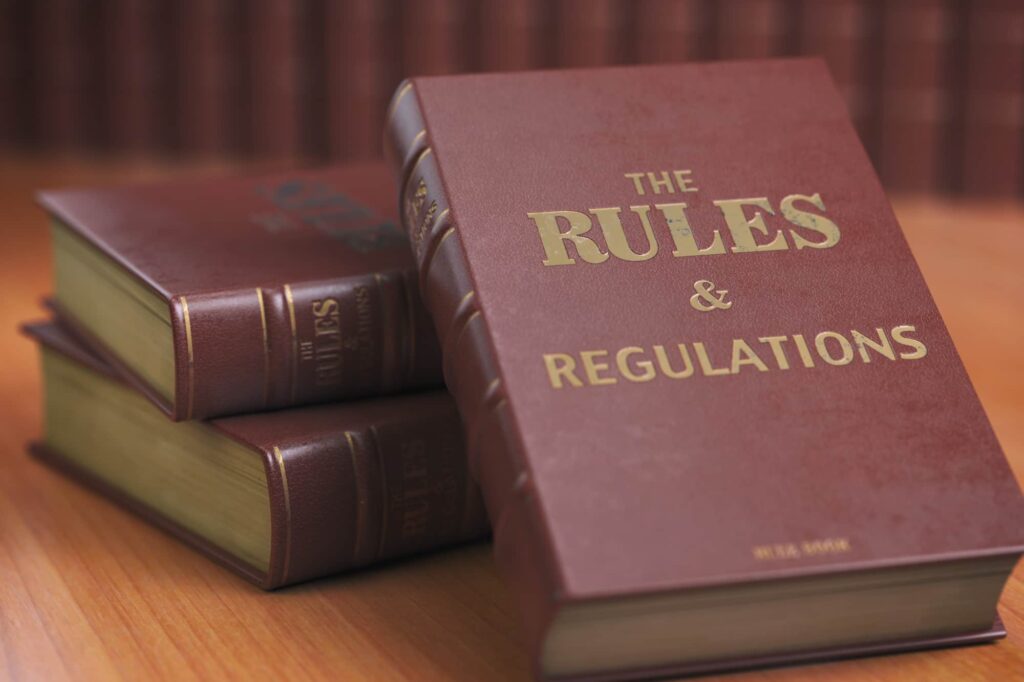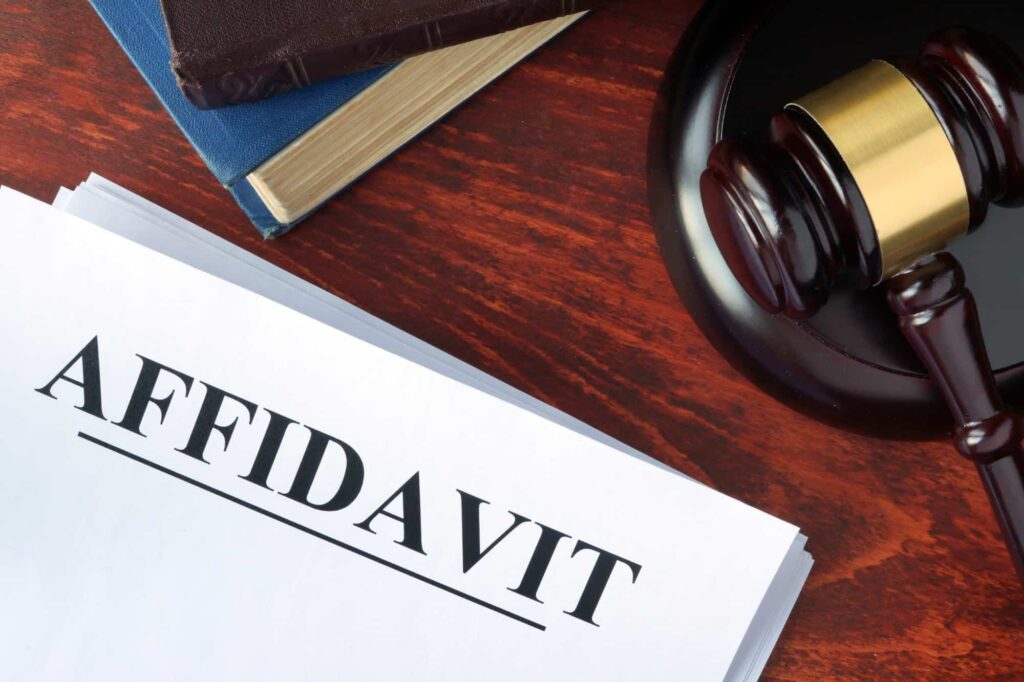All courts have procedural rules that process servers must follow, from municipal courts all the way to federal courts. Attorneys should understand the requirements for service of process for their cases, but they can also rely on professional process servers to ensure it’s completed accurately.
Some cases have to start in federal district courts, which means the Federal Rules of Civil Procedure apply for serving summons. Let’s look at what these rules are, when they apply, and how to do compliant service of process.

What Are the Federal Rules of Civil Procedure?
The Federal Rules of Civil Procedure are the guidelines that United States district courts use for civil cases. They were first passed by the Supreme Court in 1938 but have been modified several times.
These rules cover how to complete service of process in a federal civil case, as well as every other procedure relevant to civil cases:
- Pleadings
- Discovery
- Motions
- Trials
- Judgments
- Appeals
This standard set of rules ensures fairness in federal civil cases.
When Do Federal Rules of Civil Procedure Apply?
If you’re filing a complaint for a client, such as a request for damages in a personal injury case, you have to file it with the court that has jurisdiction. To file with a U.S. district court, which is the lowest-level federal court, the court must have original jurisdiction in the case.
Some examples of when you can file in federal court are:
- The two parties are from different states or countries, and the disputed amount is more than $75,000
- The dispute involves federal laws, treaties, or the Constitution
- It’s a class action case with more than $5 million disputed, and any of the plaintiffs and defendants are from different states or countries
The separation between the different types of courts in the U.S. ensures that each one hears cases that are best suited for it. When the jurisdiction of your case is a federal court, you’ll have to follow the Federal Rules of Civil Procedure.
Information in a Summons for Federal Court
After filing a complaint with the proper court, you have to present a summons for the clerk to sign and seal. Then, you can serve the summons to the defendant.
A federal summons document must contain the following:
- Names of the court and the parties
- Be directed to the defendant
- Name and address of the plaintiff’s attorney (or of the plaintiff if they’re unrepresented)
- The time within which the defendant must appear and defend
- Notification to the defendant that failure to appear and defend will result in a default judgment against the defendant
- Signature by the clerk
- Seal of the court
If the summons doesn’t contain all the required contents, the court clerk won’t sign and seal it. There’s also a procedure for amending a summons, if needed.

Who Can Serve Federal Summons?
The law allows anyone who is at least 18 years old and not a party to the complaint in the summons to serve it. However, the plaintiff can also ask for a U.S. marshal or deputy marshal—or someone else specially appointed by the court—to serve the summons.
Federal service of process can also be completed by a private process server, such as Firefly Legal.
Methods of Service in the Federal Rules of Civil Procedure
Waiving the Service of Summons Requirement
The plaintiff can ask the defendant to waive formal service of the summons and complaint. It can give the defendant more time to respond to the complaint. If the defendant doesn’t waive formal service, they have to pay for the costs of the service.
Why would waiving formal service be useful? If it’s impossible or extremely impractical to serve someone, you can request a waiver. You may also be able to use a substitute service of process method.
Serving Individuals in Foreign Countries
Do the Federal Rules of Civil Procedure apply when you need to serve someone in a foreign country? Generally, no. If the country the person is in is a signatory of the international Hague Convention, then you can use the service of process procedures spelled out there.
If the country isn’t a signatory to the Hague Convention, you’ll have to look up the service of process laws in that country and follow those. It can make service of process take much longer.
Time Limit on Federal Service of Process
You have to serve a defendant within 90 days of filing the complaint with the federal court. If you haven’t served it in this time frame, the court can dismiss your complaint. Some defendants are harder to serve, though, and may take a long time to track down.
If you’re able to show good cause for failing to serve within 90 days, the court can extend the time for service. It’s important to note that this time limit doesn’t apply when serving a defendant in a foreign country.
When a defendant is difficult to find and you can’t afford to lose time on your case, you can consider hiring a skip tracing service to keep things moving.
Methods of Service for Federal Judicial Districts
The Federal Rules of Civil Procedure allow you to follow the state laws where the defendant is located for service of process, unless another federal law prohibits it.
You can also serve a defendant by:
- Delivering a copy of the summons and complaint to the individual personally
- Leaving a copy of the summons and complaint at the individual’s dwelling or usual place of abode with someone of suitable age and discretion who also resides there
- Delivering a copy of the summons and complaint to an agency authorized by appointment or law to receive service of process
If you need to serve a corporation, partnership, or association, you can serve an officer, managing or general agent individually, but you can also mail the summons and complaint to each defendant.

How to Show Proof of Service
Following the service of process methods isn’t enough—you also must have adequate proof of service. The Federal Rules of Civil Procedure require a server’s affidavit to be presented to the court. The exceptions to this rule are U.S. marshals and deputy marshals.
If the service was outside of the U.S., then your proof must follow the requirements of the applicable treaty or convention (usually the Hague Convention). If it was in a country where no treaty or convention applies, you need to get a receipt signed by the addressee or some other form of proof to satisfy the court that the summons and complaint were delivered.
If you’re unable to show proof of service based on these rules, it doesn’t invalidate the service itself. You can ask the court to amend the service of proof if needed.
Work with Experienced Private Process Servers Who Know Federal Rules
If you’re an attorney, you’re probably very busy with plenty of cases to deal with; you can’t afford for service of process to go wrong and create delays. For federal courts, you can’t get just any process server to do it. You need a professional who understands the rules and can complete the service efficiently and correctly.
When you work with Firefly Legal, you know you’re getting competent, experienced process servers. We vet all servers we work with throughout the country so that we can guarantee efficient, professional service—every time.
For your next case in a U.S. federal court, hire the company that has specialized in process serving for more than 20 years. Request a free quote for our services today to see how we can help you.






